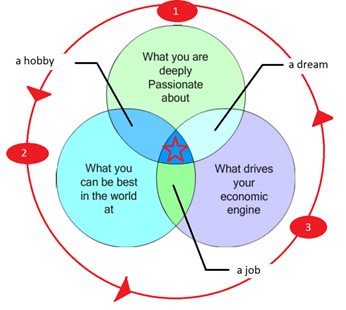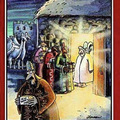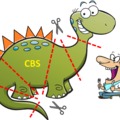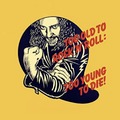In the last two years I had the chance to talk to a fair number of people in my team about their careers. After a while I recognized some patterns in these discussions and figured it would make sense to create a blog post from the relevant ones. Most of the stuff I am about to share is not my own, I read it somewhere and tried it in practice. Wherever I can I will make a reference to the source hoping that some folks might take the time to actually read the whole book.
The topics I would like to cover span from the basics of communication (eg. if this post ends up too long, nobody is going to read itJ) to deeper topic like one can drift to the perimeter without even noticing it. The first post is about the hedgehog concept as described in a book called From good to great by Jim Collins. The only tweak is that I applied it to individuals instead of companies. So here we go.
The Hedgehog Concept is based on an ancient Greek tale around the following observation: The fox knows many things, while the hedgehog knows only one big thing and still the hedgehog prevails. In the allegory, the fox uses a variety of strategies to try to catch the hedgehog. It sneaks, pounces, runs, but all in vain. At the end of the day it walks away defeated, with a nose full of spines. The fox is good at many things while the hedgehog is great at one thing: self-defense and the later wins. Why am I talking about a small unfriendly rodent in a career conversation? Let us have a look at the 3 circles of one’s professional life:

What are you deeply passionate about? – Some people argue that the first attribute should the “what you can be the best in the world at”, while I think if you listen to your instinct and devote your energies to your favorite area it will improve your chance to become the best. Passion is easy to measure, if you are passionate about something, time flies and you tend to reject interrupts (like your spouse yelling about supper).
What can you be best in the world at? This article cannot cover the nuances between “the best” vs. “the best in a given location” vs. “relative expert” vs. “best according to someone’s taste”. We can settle for an uglier term: marketability. What combination of skills can you bring to the (job) market that is sought after by entities that can actually pay for it? An example could be developer skills: a person who is considered to be a decent developer might be overqualified for a devops job at a countryside municipality while would be rejected after the phone screening at an investment bank. This example also raises two topics that could deserve an entire post. The first is the differentiation between natural talent and a polished skill. Unless you are born with skills like W.A. Mozart you probably need to spend a number of years to become “the best”. The other thing is the fact of half-life: ie. being the best today at something does not necessarily guarantee that you will remain the best a few years from now. Three things will change: the subject matter, you yourself and your competition.
What drives your economic engine? The expression originally relates to companies that we could translate to “sustainable compensation”. It is important to keep in mind that the scarcity of the resource will determine its price. Napoleon III was rumored to have used aluminum plates while his guests had to eat from ones made of gold. Tableware made of aluminum is the synonym of cheap today. The same applies to skills: when demand is significantly beyond supply prices go up, while this drives the buyers nuts so they will do everything possible to find alternatives. When they succeed, demand starts dropping, so do the prices. Translating it to IT: when you go for a niche, you will hit the jackpot for a while, then you will have to look for another niche. Commonplace but true: if you possess a set of interrelated skills peppered with communication skills, your marketability gets higher than the sum of the individual skills would dictate. One more aspect: depending on which chapter of your life you are your cash flow sensitivity ie. your appetite for risk will vary, hence the word “sustainable”.
After this long intro section we reached the real thing: how one should decide on the steps of his/her career. The obvious optimum is the intersection of the three circles, when you are passionate about the stuff you are working on, you are a true expert on it and this subject-skill combo is marketable. Happily ever after…
- The job - If you manage yourself into the intersection of being good at something and being well paid (a job), but your heart is not in it, you will drop the keyboard at 6PM and you will ignore new developments in your area. This will either lead to burn-out and surely will make you fall behind others who love their trade. Either way, your employment will suffer in the long term.
- The hobby – I run the risk that this post ends up in the hands of a translator of ancient Greek poems, currently being employed at a local McDonalds, so I use my own example instead: 26 years ago my passion and skills gravitated to physics so I was offered an assistant professor job at the department of electron physics at the Budapest University of Technology (BME) with the whopping gross compensation of 6400 HUF per month while my mortgage was 4600 HUF. This meant the end of my career in science.
- The dream –check out the Monty Python scene about the man who applied for the role of Tarzan titled One leg too few and you will get the point.
The final word on this blog post: know where you are in the three circles and be there at you own will rather than drifting into it. Should you have questions or a counter argument, please let me know.





